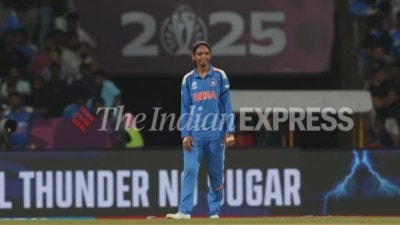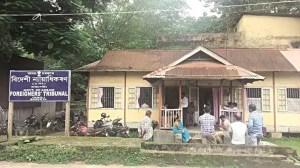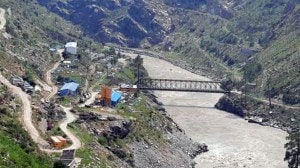With the latest appointments in its district and city units in Uttar Pradesh, the Congress may have increased representation for Dalits, Backward Classes, and Muslims, but many in the state unit from marginalised communities still feel that the appointments do not reflect the “real social composition” of UP.
Late Thursday night, the Congress appointed city and district presidents for 75 districts. With Assembly elections in UP scheduled for 2027, the Congress has been facing problems navigating seat sharing with ally Samajwadi Party (SP).

An analysis of the appointments shows that 50 posts have gone to upper castes, with the majority to Brahmins, 18 have gone to Scheduled Castes (SCs), 34 to OBCs, 31 to Muslims, and one to a Scheduled Tribe (ST). A total of 33 district and city presidents, who held the posts when the state unit was dissolved in December by party president Mallikarjun Kharge, have been reappointed.
Party leaders from Dalit and OBC communities said while representation for disadvantaged groups had increased, it had still not matched their share in the state population. There is disappointment that the party did not appoint enough Dalits and OBCs.
“The revamp is in tune with the social justice movement led by our leader Rahul Gandhi. Even among OBCs, SCs and minorities, leadership roles have been given to the most deprived communities, among these as well,” said C P Rai, who heads the UP Congress’s media department. For instance, according to sources, almost half of the Muslim appointees are from the backward classes among Muslims.
Among the main complaints is that upper castes have been given too many posts. The Congress has traditionally banked on these communities but that vote bank has since shifted to the BJP in the last few elections. The Congress has struggled to win seats and secure respectable vote shares in the state. At 50, upper castes have been given 37% of the 134 recent appointments, despite constituting around 20% of the state’s population.
“When the party has made caste census and hissedari (share) its main pitch, how can upper castes get 50 posts out of 134? And this is also when we know that they vote for the BJP in UP and are unlikely to shift to the Congress or any other party,” said a senior Dalit leader.
Story continues below this ad
“When our leader Rahul Gandhi has been talking about giving not just representation, but power to those who have so far been neglected, how can the party give disproportionate posts to upper castes?” the leader added.
Factors in the appointment process
The appointment process began in December and went on for nearly two months, with both Lok Sabha Leader of Opposition Rahul Gandhi and MP Priyanka Gandhi overseeing the reconstitution of the party’s district units.
Senior leaders from the All India Congress Committee (AICC) and UP Congress, including AICC general secretary in-charge of UP Avinash Pande and state Congress chief Ajay Rai, conducted interviews with probable candidates for district and city presidents.
Ajay Rai told The Indian Express, “If you see the list, it has given 65% representation to Dalits, Muslims, OBCs and STs.”
Story continues below this ad
Asked about the sizeable representation of upper castes in the list, Rai said, “Appointments have been done based on merit and capability. They are hardworking people and some have been given posts based on seniority too.”
Party leaders said age was also factored into the appointments. While there are just seven district and city chiefs who are above the age of 60, a majority are aged between 40 and 60, and 24 are aged 31 to 40. Though there are just eight women among the appointees, party leaders claim it is higher than before.
In UP, given that the SP is the senior INDIA bloc ally, the Congress is looking to build an organisational setup that can hit the ground running to enhance its bargaining power for the 2027 state elections.
The latest appointments also gain significance amid the Congress’s efforts to shift to a more decentralised organisational model in which the party’s district units are more autonomous.
Story continues below this ad
What AICC discussed
During a meeting at the AICC headquarters in Delhi on Tuesday, the proposal to restructure the party organisation, with the district units being central to its structure, was discussed in the presence of Kharge, Rahul Gandhi, and other senior leaders. The idea is to decentralise decision-making powers in the party. To this end, a committee has been formed, led by Rajya Sabha MP Mukul Wasnik and including Priyanka Gandhi, and newly appointed AICC in-charges Jitendra Singh, Meenakshi Natarajan, Krishna Allavaru, Sachin Rao and Kanhaiya Kumar.
Congress sources said three main aspects of restructuring were discussed at the Tuesday meeting – the selection criteria for district-level committees, the role of these committees, and their financial strength and independence. “The idea of this new structure being district-centred is Rahul Gandhi’s,” said a source.
The party has not yet decided whether new district presidents across India would be appointed through elections or based on interviews, as was the case in UP. “The appointments in UP in 2019 were done under the guidance of Priyanka Gandhi when she was heading affairs in the state, and the latest appointments are being taken as examples of how district units can be appointed,” a Congress source said.
The Congress is also planning a national conference of all district chiefs in Delhi, where Rahul Gandhi is expected to get feedback from the district unit presidents on the organisational overhaul, ahead of the AICC session in Ahmedabad on April 8-9.

































